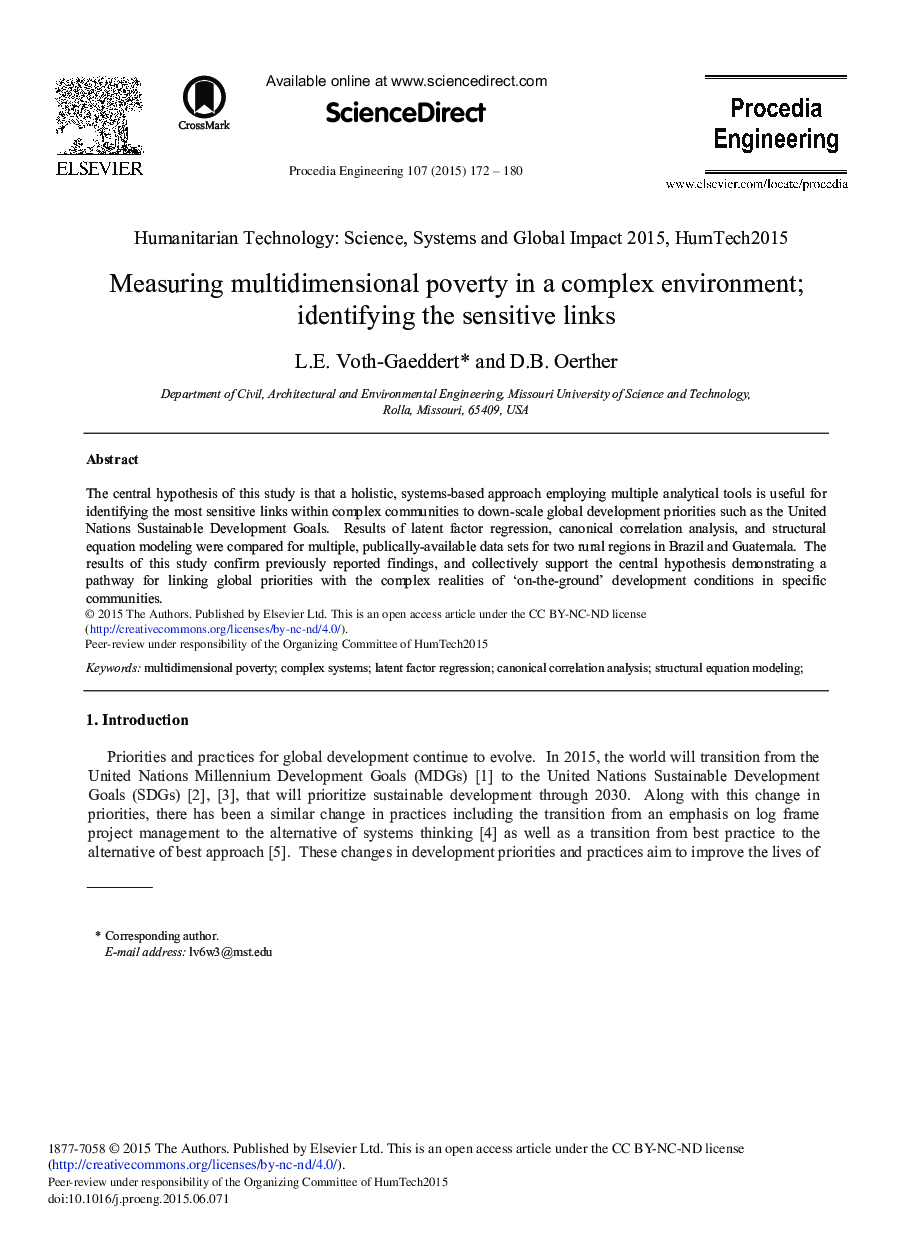| Article ID | Journal | Published Year | Pages | File Type |
|---|---|---|---|---|
| 856718 | Procedia Engineering | 2015 | 9 Pages |
The central hypothesis of this study is that a holistic, systems-based approach employing multiple analytical tools is useful for identifying the most sensitive links within complex communities to down-scale global development priorities such as the United Nations Sustainable Development Goals. Results of latent factor regression, canonical correlation analysis, and structural equation modeling were compared for multiple, publically-available data sets for two rural regions in Brazil and Guatemala. The results of this study confirm previously reported findings, and collectively support the central hypothesis demonstrating a pathway for linking global priorities with the complex realities of ‘on-the-ground’ development conditions in specific communities.
